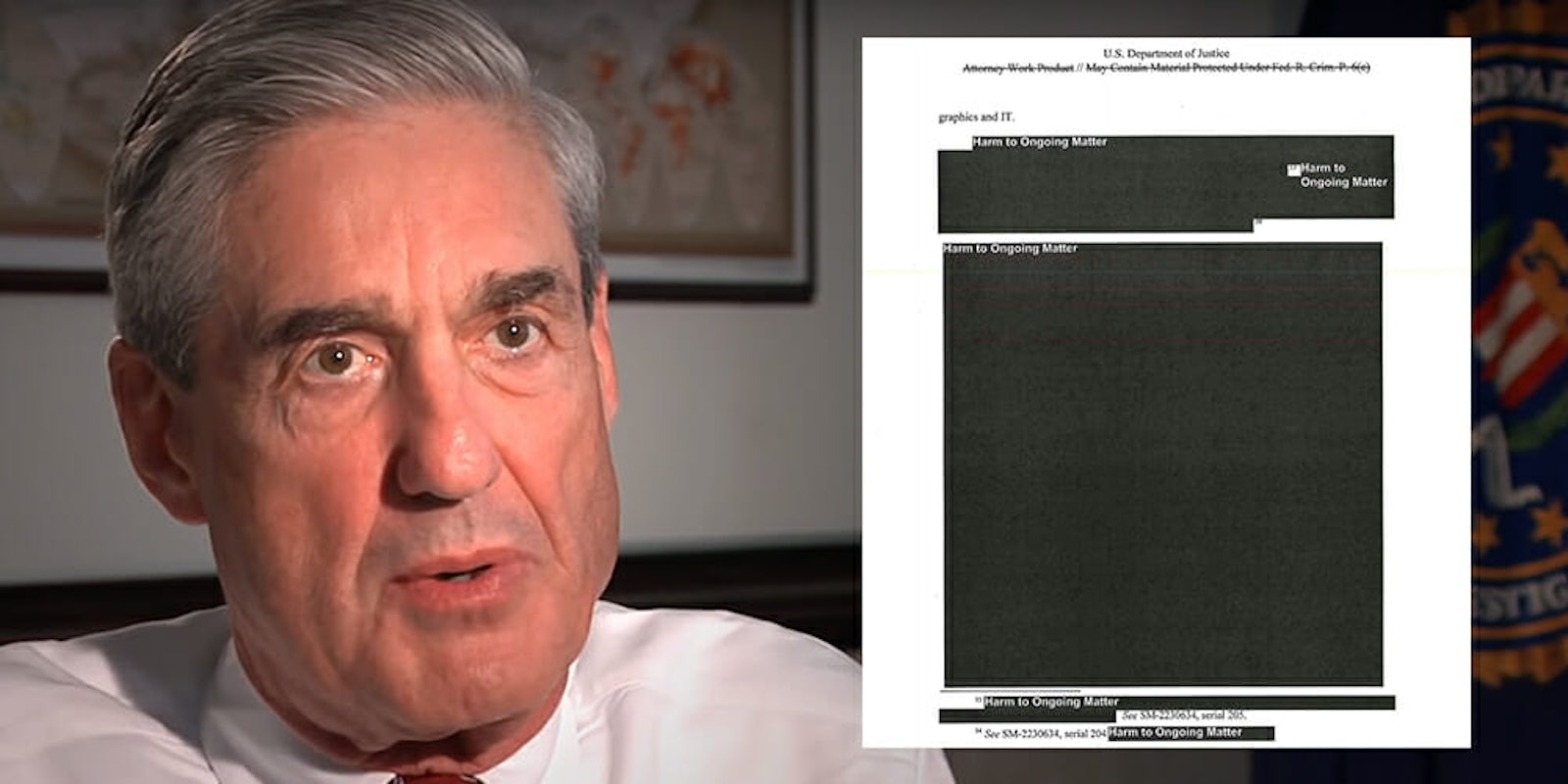After the public release of special counsel Robert Mueller’s report on his investigation into Russian interference in the 2016 election, Democrats took issue with the blacked-out redactions, which sometimes blocked entire pages of text.
But perhaps no criticism of the 400-page report was as scathing as that of the leading authority on document preparation: the PDF Association.
The organization declares itself an “international collaboration of member organizations and individuals actively learning from and supporting each other in the development and use of PDF technology.” And in a report of its own assessing the “technical and cultural” aspects of the Mueller report PDF, the association criticized the Department of Justice for how it handled the precious document.
The problem, the PDF Association explained, is that the Department of Justice has all the tools to compile an effective, easy-to-read PDF. And yet, it didn’t.
Firstly, the PDF Association asserts, the report was not created in adherence to section 508 of the Rehabilitation Act, which outlines accessibility requirements for technology created or maintained by the federal government.
“In addition to not being searchable, the file contains no text, is not tagged, and is therefore not accessible to disabled users,” the PDF Association’s report states.
Furthermore, in its detailed analysis of how the report was delivered and compiled, the PDF Association concluded that the Department of Justice “printed and then scanned the document after it was redacted.”
According to the PDF Association, “This deliberate and unnecessary act made the document substantially harder for anyone and everyone to use, forever.”
Even the developer of the first PDF redaction tool himself, Mark Gavin of Appligent Document Solutions, found the report’s preparation difficult to comprehend.
“The document cannot be read by a screen reader for people with visual disabilities and it cannot be analyzed using any text analysis tools,” Gavin said. “The Mueller report as a redacted PDF document is really kind of sad.”
Read the PDF Association’s full report here.
READ MORE:


